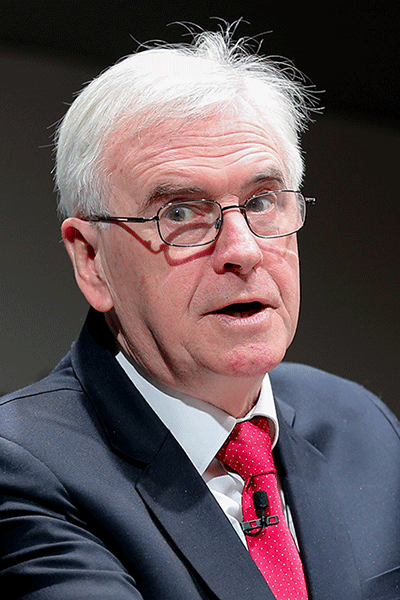An autism charity has criticised the Labour Party for backing neurodiversity.
Charity Thinking Autism accuses the neurodiversity movement of refusing to accept the medical basis for autism.

Shadow chancellor John McDonnell, who is involved in Labour’s neurodiversity movement
Labour launched its Neurodiversity Manifesto last September. Neurodiversity casts autism as simply a difference, rather than a condition needing treatment.
Epilepsy and gastrointestinal problems
In a statement, Thinking Autism points to autism’s links to epilepsy and gastrointestinal problems. It says this is evidence that autism is more than just a neurological difference.
The charity also says neurodiversity ignores the challenges that parents face in caring for children with severe autism.
It questions why “non-autistic parents must defer to people who have never even met their children”.
The statement says while neurodiversity advocates may not want treatment, others have the right to “make different choices”.
Plan to contact John McDonnell over neurodiversity
The group said they planned to contact John McDonnell, Labour’s shadow chancellor. McDonnell is involved in the party’s neurodiversity movement.
Autistic Labour activist Janine Booth insists neurodiversity accepts “some autistic people would like to be cured, and that some parents would like to cure their children”.
However, she says she does not accept that looking for a cure is “ethical”.
Effective treatments
Thinking Autism says people’s lived experience shows effective treatments can reduce and “even eliminate the symptoms that constitute a diagnosis of autism”.
Booth argues this “contradicts all credible scientific evidence”.
However, research has documented people with autism in childhood losing the diagnosis following early intervention.
A 2016 study led by Turkish researcher Dr Nahit Motavalli Mukaddes explored outcomes for children who lose their diagnosis.
The study found that more than nine in 10 of the children (92 per cent) who lost their diagnosis of autism at some point gained a diagnosis with a new condition instead. Such conditions included attention deficit hyperactivity disorder and obsessive-compulsive disorder.
Dr Mukaddes published the study in Pediatrics International.
Related:
- Study calls for interventions for adults
- Autism charity slams MP’s insult
- Watchdog slams NHS’s grasp of autism
- Thinking Autism International Conference… New frontiers in research: evidence-based treatment of medical comorbidities
Published: 8 April 2019















